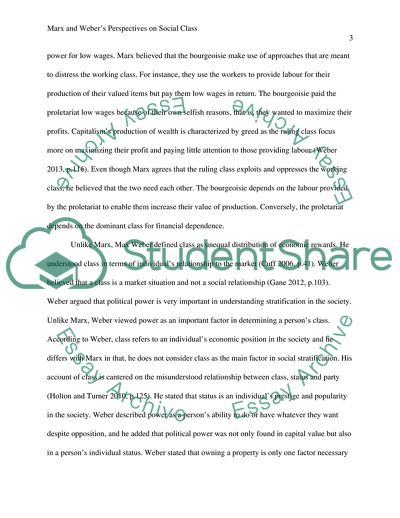Cite this document
(The Marxian and Weberian Approach to Class Coursework Example | Topics and Well Written Essays - 1500 words, n.d.)
The Marxian and Weberian Approach to Class Coursework Example | Topics and Well Written Essays - 1500 words. https://studentshare.org/social-science/1856005-marx-and-weber-each-discussed-social-class-compare-and-contrast-the-marxian-and-weberian-approach-to-class
The Marxian and Weberian Approach to Class Coursework Example | Topics and Well Written Essays - 1500 words. https://studentshare.org/social-science/1856005-marx-and-weber-each-discussed-social-class-compare-and-contrast-the-marxian-and-weberian-approach-to-class
(The Marxian and Weberian Approach to Class Coursework Example | Topics and Well Written Essays - 1500 Words)
The Marxian and Weberian Approach to Class Coursework Example | Topics and Well Written Essays - 1500 Words. https://studentshare.org/social-science/1856005-marx-and-weber-each-discussed-social-class-compare-and-contrast-the-marxian-and-weberian-approach-to-class.
The Marxian and Weberian Approach to Class Coursework Example | Topics and Well Written Essays - 1500 Words. https://studentshare.org/social-science/1856005-marx-and-weber-each-discussed-social-class-compare-and-contrast-the-marxian-and-weberian-approach-to-class.
“The Marxian and Weberian Approach to Class Coursework Example | Topics and Well Written Essays - 1500 Words”. https://studentshare.org/social-science/1856005-marx-and-weber-each-discussed-social-class-compare-and-contrast-the-marxian-and-weberian-approach-to-class.


